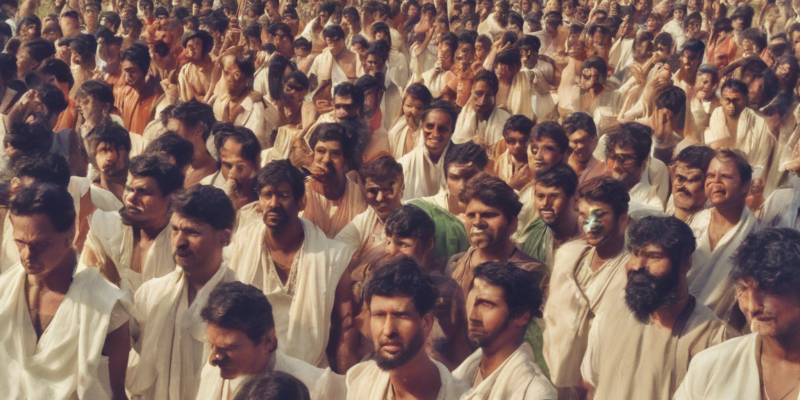Have you ever found yourself caught up in the whirlwind of complex emotions while watching a Bollywood movie? If you’re a fan of Indian cinema, you may have come across the enigmatic phrase “Kya Hua”, echoing through dramatic scenes and conversations. This seemingly simple phrase carries a depth of meaning and emotion that transcends language barriers. In this article, we will explore the significance of “Kya Hua” in Bollywood, unpacking its various layers and shedding light on why it has become a staple in Indian cinema.
The Essence of “Kya Hua”
“Kya Hua” can be translated to “What happened?” in English, but its true essence goes beyond mere words. In Bollywood films, this phrase is often used in moments of heightened drama, tension, or emotion. It serves as a gateway for characters to express their deepest fears, desires, and vulnerabilities. Whether it’s a lover questioning a sudden change in behavior, a hero confronting a villain, or a family member seeking clarity in a moment of chaos, “Kya Hua” encapsulates a range of emotions and intentions.
Unraveling the Mystery
Cinematic Significance
In the world of Bollywood, “Kya Hua” has become synonymous with melodrama and intense dialogue delivery. Its repetition in pivotal scenes adds an element of suspense, intrigue, and emotional intensity. Directors often use this phrase to build tension and create memorable moments that resonate with audiences.
Emotional Depth
At its core, “Kya Hua” reflects the human experience of grappling with uncertainties and seeking resolution. It embodies the longing for connection, understanding, and closure in relationships and life events. By uttering these two simple words, characters bare their souls and invite audiences to empathize with their struggles and triumphs.
Symbolism and Cultural Context
Beyond its literal meaning, “Kya Hua” carries symbolic weight in Indian culture. It symbolizes the importance of communication, emotional transparency, and empathy in relationships. In a society where emotions are often expressed indirectly or through gestures, this phrase serves as a bridge for honest dialogue and heartfelt confessions.
The Art of Dialogue in Bollywood
“Kya Hua” is just one example of the rich tapestry of dialogue in Bollywood films. Indian cinema is known for its poetic language, dramatic monologues, and memorable one-liners that capture the essence of human emotions. Dialogues in Bollywood serve as a linguistic playground for writers, actors, and directors to convey complex ideas, values, and emotions through the power of words.
FAQs About “Kya Hua”
1. What is the significance of “Kya Hua” in Bollywood movies?
- Answer: “Kya Hua” is a phrase often used in intense, emotional moments to express confusion, longing, or confrontation in Indian cinema.
2. How is “Kya Hua” portrayed in different genres of Bollywood films?
- Answer: In romantic films, “Kya Hua” may signify a misunderstanding between lovers, while in action films, it can denote a challenge or threat.
3. Is “Kya Hua” a commonly used phrase in everyday Indian conversation?
- Answer: Yes, “Kya Hua” is a versatile phrase that is commonly used in everyday dialogue to inquire about someone’s well-being or to seek clarification on a situation.
4. Does the tone of voice change the meaning of “Kya Hua”?
- Answer: Yes, the tone of voice, facial expressions, and context in which “Kya Hua” is spoken can significantly alter its meaning, ranging from concern to frustration to curiosity.
5. Are there any iconic Bollywood scenes featuring the dialogue “Kya Hua”?
- Answer: Yes, there are numerous iconic scenes in Bollywood history where “Kya Hua” has been pivotal in shaping the narrative and emotional resonance of the film.
In conclusion, “Kya Hua” serves as a window into the intricate world of Bollywood storytelling, where words hold the power to transcend language and culture. This simple yet profound phrase captures the essence of human emotions, relationships, and the eternal quest for understanding. The next time you hear “Kya Hua” in a Bollywood movie, pay attention to the emotions it evokes and the stories it tells, for within those two words lies a world of meaning waiting to be unraveled.

